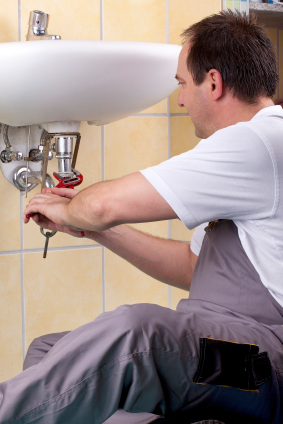
Latest Listings

- Greystanes$750 weekly
- 4 Bed 1 Bath 1 Car

- Wentworthville$820 weekly
- 4 Bed 2 Bath 0 Car

- Pendle Hill$540 weekly
- 2 Bed 1 Bath 1 Car
Starting a Tenancy
Renting a home
When you rent a home in NSW and become a 'renter' or a 'tenant', knowing your rights and responsibilities will help you avoid or resolve differences you may have with your landlord, real estate agent, house-mates or neighbours.
At the start of every tenancy, you should be given a copy of the New tenant checklist by your landlord or agent.In this section, you will find information to help you understand what the tenancy laws in NSW mean for you, at the beginning, middle or end of a tenancy.
Starting a tenancy
A guide for tenants
At the start of every tenancy, the landlord or agent must give you a copy of a Fair Trading publication called New tenant checklist. The New tenant checklist is a fact sheet that contains important information you should be aware of before signing a new lease. Make sure you read it carefully and ask your landlord or agent about anything you do not understand.
You should also be given a copy of your lease and 2 copies of the premises condition report, which you should fill in and then return one of the copies to your landlord or agent within 7 days. You should take your time to fill it out with as much detail and accuracy as possible.
The condition report will be a key piece of evidence at the end of the tenancy if there is a dispute about who should pay for cleaning, damage or the replacement of missing items.
Getting repairs done
When you rent a place to live the landlord must ensure it is in a reasonable state of repair, taking into account the age and remaining life of the property and the amount of rent payable.
If something in the premises breaks down, leaks or needs fixing you should contact the landlord or agent as soon as possible. Unless the repairs are urgent, it is best to make the request in writing. Tell them what needs fixing and when you would like it done by.
Remember that the landlord is not always obliged to fix every small thing in the property. They only need to keep the premises in a reasonable state of repair considering the age of the property, the amount of rent you are paying and the prospective life of the premises. They also need to comply with building, health and safety laws.
You are responsible for doing things like replacing light bulbs, changing the smoke detector batteries, cleaning windows, dusting, removing cobwebs and routine garden maintenance such as watering, mowing and weeding.
Urgent repairs
The law distinguishes between urgent (emergency) repairs and those which are not so urgent. Urgent repairs are-
- A burst water service or a serious water service leak
- A blocked or broken toilet
- A serious roof leak
- A gas leak
- A dangerous electrical fault
- Flooding or serious flood damage
- Serious storm or fire damage
- A failure or breakdown of the gas, electricity or water supply to the premises
- A failure or breakdown of the hot water service
- Afailure or breakdown of the stove or oven
- A failure or breakdown of a heater or air-conditioner
- A fault or damage which makes the premises unsafe or insecure.
If urgent repairs are needed you should notify the landlord or agent right away. The landlord or agent must arrange for the repairs to be done as soon as possible. If you cannot reach them, check your tenancy agreement for the details of a nominated tradesperson to contact.
If urgent repairs are not done within a reasonable time you may be able to arrange for the work to be done and be reimbursed by the landlord (but only up to $1000).
However, you must be able to show that-
- The need for the urgent repair was not your fault
- You contacted the landlord or agent about the problem or made a reasonable attempt to
- You gave the landlord or agent a reasonable opportunity to get the repairs done
-
The repairs were carried out by a licensed tradesperson (if appropriate)
You must give the landlord written notice setting out the details of the repair and copies of all receipts. The landlord is required to pay you back within 14 days of receiving your notice. If they do not you can apply to the Consumer, Trader and Tenancy Tribunal for an order.
If urgent repairs are likely to cost more than $1000 or you cannot afford to pay you can apply to the Tribunal for an urgent hearing for orders for the landlord to get the repairs done.
Doing repairs yourself
You cannot arrange for non-urgent repairs to be carried out unless the landlord or agent has agreed. If they agree, make sure you get it in writing before the work is done, including any agreement about reimbursing your costs.
If repairs are not done
You should never stop paying the rent because the landlord has failed to do repairs. Withholding rent will put you in breach of your agreement and will not help to resolve the repairs problem.
Withholding rent places you at risk of having your tenancy terminated.
Getting orders from the Tribunal
You can apply to the Tribunal for orders relating to repairs. These include-
- An order that the landlord do repairs
- An order that you can pay your rent to the Tribunal until the repairs are done
- An order that your rent be reduced until the time it is fixed
- An order to compensate you for losses (e.g. damage to your belongings from a leaking pipe after you told the landlord the pipe was leaking)
Damage caused by you
You must notifiy the landlord as soon as possible if the property is damaged. If you or or somebody you invited to your home caused damage, you may have to pay for the repairs or arrange for the repairs yourself.
At a glance
Old laws New laws
Landlord responsible to maintain premises in reasonable repair- Same
Tenant can apply to the Tribunal to resolve disputes about repairs- Same
Urgent repairs listed Same, plus new items about serious water leaks and broken airconditioners